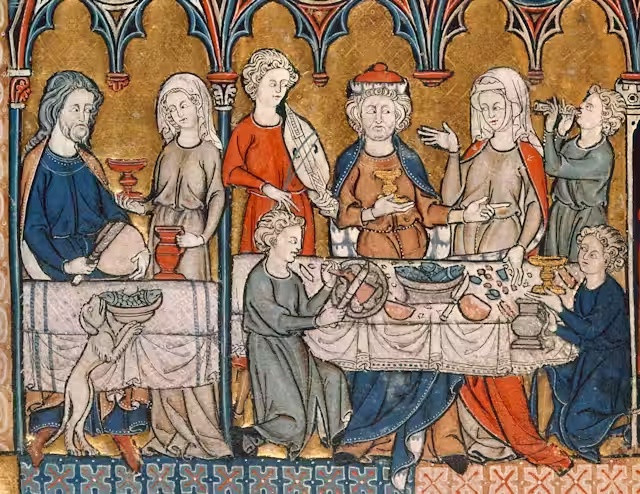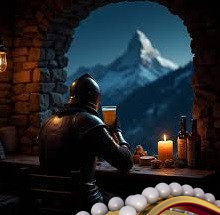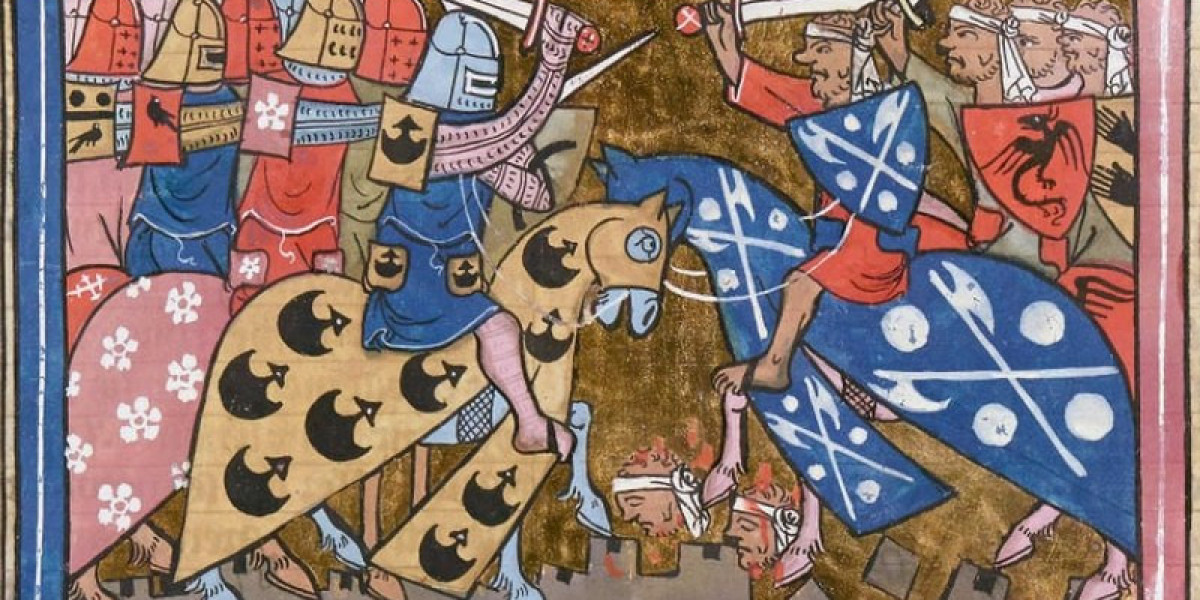

@DrunkKnight
The Legacy of the Knights Templar and Alcohol
The legacy of the Knights Templar continues to influence modern societies, even in the realm of alcohol. Several modern alcohol brands have used the imagery of the Knights Templar and the Crusades in their marketing, releasing products such as "Templar Ale" or "Crusader Wine".
Before looking at the Templars and alcohol, it is important to understand the historical and cultural context of the organization. The Knights Templar were founded in 1119 AD, initially to protect Christian pilgrims traveling to the Holy Land. Over time, the order expanded its functions to include military operations, banking, and other activities.
Although they were monks, they were also warriors. As such, they straddled the military and monastic worlds, bound by both the chivalric code and the religious vows of monks.
Were the Templars Christians?
The Templars were indeed Christians. They were a Christian military order founded in the 12th century, during the time of the Crusades. Their full name was “Poor Fellow-Soldiers of Christ and the Temple of Solomon,” reflecting their Christian identity and connection to the Temple of Solomon in Jerusalem.
The Roman Catholic Church sanctioned the order, and its members were expected to live by Christian principles and uphold the faith. They took monastic vows of poverty, chastity, and obedience, similar to those taken by monks. They followed a strict set of rules known as the Latin Rule, which outlined their religious and moral duties.
The Templars' primary mission was to protect Christian pilgrims traveling to the Holy Land. Over time, they also participated in various military campaigns during the Crusades, intent on reclaiming and holding sacred Christian territories in the Middle East.
So the Knights Templar were not just Christians; they were Christian warriors who dedicated their lives to their faith and its defense.
Rule of Order and Alcohol Consumption
The Templars lived by a specific set of rules known as the "Rules of the Order." This set of rules, created in the early years of the Templars, outlined how they were to live, pray, and behave.
Interestingly, the Rule does not outright prohibit alcohol consumption. However, it does regulate it to some extent. According to the Rule, the Templars were allowed to drink "watered wine," which was a common practice in the Middle Ages to make wine safer to drink and less intoxicating. They were also forbidden to drink in moderation, mainly during meals. The Rule made it clear that drunkenness was not tolerated among the Templars, as it was considered a vice that could lead to other sins.
What were the Templars not allowed to do?
The Templars were bound by a strict set of rules, known as the Latin Rule or the Rule of the Order, which outlined specific behaviors they were not allowed to engage in. These prohibitions were intended to maintain their spiritual purity, keep their vows, and ensure military discipline.
Breaking the Vows of Poverty, Chastity, and Obedience
The Templars took vows of poverty, chastity, and obedience, which were strictly observed. They were not allowed to own personal property. All property and income was divided within the order. Breaking the vow of chastity, which meant they could not engage in any sexual activity, was also strictly forbidden. Submission to the hierarchy of the order was required at all times, and disobedience was severely punished.
Participation in Secular Life
The Templars were forbidden from engaging in secular activities that might distract them from their religious duties. This included hunting and participating in games or festivities. They were also not allowed to wear elaborate clothing or jewelry; their clothing had to be simple and modest.
Independent Action in Combat
In combat, the Templars were allowed to retreat if the enemy significantly outnumbered them. They also could not act independently; they had to follow the command structure of the order. A lone Templar was not allowed to confront a large group of enemies alone, which was considered an act of recklessness, not bravery.
Failure to Observe the Rule of Silence
The Templars were also bound by the Rule of Silence at certain times. They were not allowed to speak during meals or at other specified times. This silence was considered a form of spiritual discipline, conducive to contemplation and prayer.
Ultimately, the Knights Templar were not allowed to do anything that would compromise their vows, jeopardize the discipline of the order, or distract from their spiritual and military mission. These prohibitions highlight the unique role of the Templars as monks and warriors, dedicated to a life of purity, community life, and military discipline.
Daily Life of the Templars: Food and Drink
Daily life for a Knight Templar was a mixture of strict military discipline, monastic life, and community life. This unique mixture was reflected in their approach to food and drink.
Food and Nutrition
The Templars ate a relatively simple and nutritious diet, primarily due to their vows of poverty. Their meals consisted of seasonal vegetables, grains such as barley and oats, legumes, and sometimes meat. Meat was served two or three times a week, usually on Sundays and special occasions. On other days, food

The Middle Ages, wine, humor, exploits & glorious novels about the adventures of cheerful, daring knights

